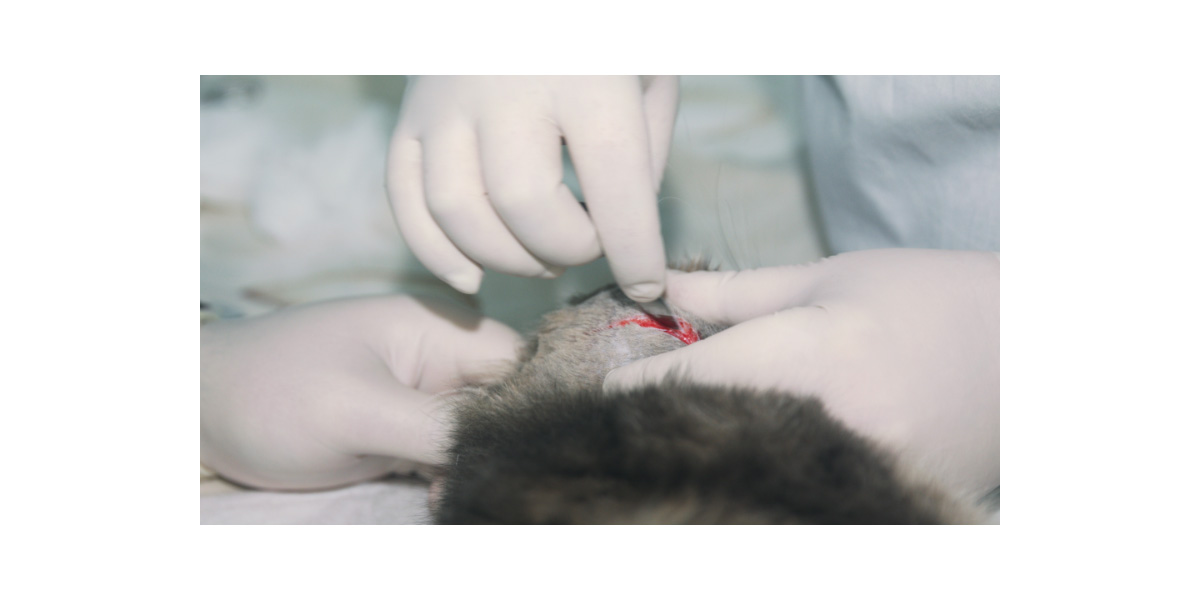
As a pet parent, it’s normal to feel worried about your pet having surgery, whether they’re going in for an elective procedure like a spay or neuter, or being treated for an ongoing or urgent health issue.
Rest assured that your cat or dog is in good hands and before you know it, you’ll get that phone call to let you know it’s time to take them home. After that, the hardest part is over, and you’ll spend the following weeks helping your pet recovery from surgery. Here’s what you can expect after you pick up your pet from the vet.
What To Expect After Surgery
For most surgeries, your pet will be under general anesthesia, which prevents them from waking up or feeling pain during the procedure. Your pet may continue to feel the effects of the anesthesia for a few hours after you bring them home. Normal side–effects include:
- Bruising and swelling around the incision
- Grogginess for up to 24 hours
- Mild dizziness/disorientation upon standing
- Nausea and inappetance for up to 24 hours
- Increased urination from IV fluids
- Slight cough from breathing tube
- Constipation from fasting and/or pain medications
Side-effects should subside within 24 to 48 hours after your pet comes home after surgery. If your pet does not seem to be starting to feel better after two days, call your veterinarian.
Can I Give My Pet Food and Water After Surgery?
It’s common for pets to feel queasy up to two days after surgery and they may refuse to eat or drink water. It’s okay if your pet does not want to eat right away, and it’s ideal to serve just a small portion at first. You can give your pet their regular food, soaked in warm water to keep them hydrated, or a bland, easy-to-digest, low fat cooked meal like boiled chicken and white rice. Always give your pet access to fresh, clean water.
If it’s been more than two days and your pet’s appetite has not returned, seek veterinary care. A lack of appetite after surgery can be a sign that your pet is in pain or may have developed an infection.
Warning Signs of Infection After Surgery
Check your pet’s incision several times a day and watch for these warning signs that can indicate an infection, which can be life-threatening. Seek veterinary care right away if your pet experiences:
- Fever
- Lack of appetite after 48 hours
- Lethargy after 24 hours
- Bleeding or pus from incision
- Pale gums
- Vomiting or diarrhea after 24 hours
What To Give Your Pet for Pain After Surgery
Your veterinarian may or may not prescribe pain medications for your pet after surgery. Your cat or dog will most likely have received an injectable pain medication after their procedure, and in some cases no additional medication will be needed.
If your pet has not been prescribed any pain medication and they seem to be experiencing pain or discomfort, call your vet’s office for help. Never give human pain relievers to your pet, as they can cause serious, even fatal toxicity.
Protect Your Pet’s Surgical Site
Your vet may have used surgical glue, staples, stitches, or dissolvable sutures to close up your pet’s incision. Dissolvable sutures and glue are absorbed by the body after a week or two. Stitches and staples will need to be removed by your veterinarian during your pet’s follow-up appointment, which will likely be in around 10-14 days.
Meanwhile, follow your vet’s instructions to keep the incision clean and dry while your pet recovers. Unless given specific directions, you most likely do not need to wash the surgical site. Just keep it dry and do not allow your pet to lick or chew at their stitches.
If your pet goes home with bandages, you may be instructed to remove them at home, or you may need to return to your vet’s office for changing. Do not attempt to change bandages yourself unless under the guidance of your vet.
Does My Pet Need To Wear A Cone?
An Elizabethan collar, also called an e-collar or recovery cone, blocks your pet from licking or chewing at their stitches. Some vets send their patients home with a basic plastic cone, but your pet may prefer a soft, comfortable recovery cone.
It can take a few days for your pet to adapt to wearing their cone. It’s best to keep it on all day so your pet gets used to it.
If a cone isn’t working for your pet, you can protect their stitches with a recovery suit or even a repurposed baby onesie.
How Long Does It Take For Pets To Recover After Surgery?
For soft tissue surgeries, including spay, neuter, and tumor removal, recovery is usually relatively quick. Your pet may begin to go back to their usual routine after just a few days, and will be completely healed in less than eight weeks. In the meantime, prevent your pet from climbing stairs and furniture, and only take them out for quick potty breaks.
Some pets become active and playful within a few days of surgery, even though they’re still healing. In some cases it may be necessary for your vet to prescribe a mild sedative to keep your pet calm.
Orthopedic surgeries, which may affect the bone, joints, or ligaments, take a bit longer to heal. It’s more likely that your pet will need to be on crate rest and only walked for quick potty breaks. It’s best to wait until you get your vet’s okay during a follow-up appointment before gradually building up to their normal level of activity.





































